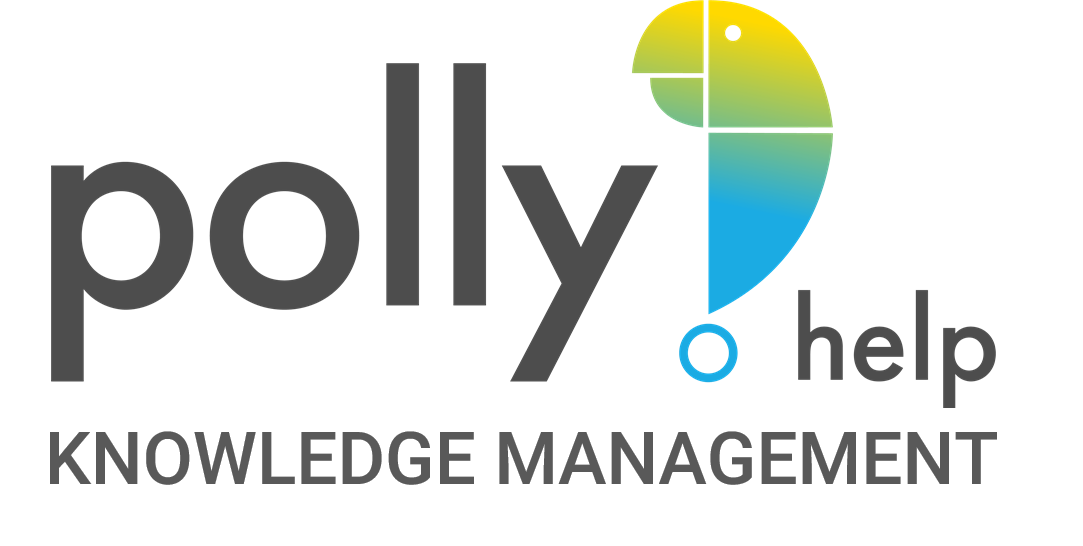The ever-evolving domain of knowledge management (KM) has become a cornerstone for organizational progression, charting new pathways for IT professionals and aspirants from the field of information sciences. As industries pivot towards data-driven decision-making and strategic knowledge utilization, the demand for skilled individuals in KM jobs is experiencing a noteworthy surge. This seismic shift is not only creating dynamic career opportunities but also carving out niches for expertise in managing and leveraging information as an asset.
IT professionals with a penchant for systemizing and enhancing the flow of knowledge within a company stand at the forefront of this transformation. By blending their technical acumen with an understanding of strategic information deployment, these professionals are transforming the landscape of information management, paving the way for robust organizational growth and competitiveness.
Key Takeaways
- Demand for knowledge management careers is on the rise within various sectors
- IT professionals are uniquely positioned to excel in KM roles due to their technical background
- Strategic knowledge is now recognized as an integral asset in organizational growth
- Information sciences graduates have valuable skill sets that align with KM job requirements
- Knowing how to strategically manage and disseminate knowledge is key to career advancement in KM
- Diverse roles in KM present opportunities for specialization and leadership
The Strategic Importance of Knowledge Management
In an era where information serves as the backbone of competitiveness, strategic knowledge management (KM) has become a critical element for success, particularly in the IT sector. By harnessing organizational assets to drive strategic initiatives, companies can achieve a substantial advantage over their competitors.
Defining Knowledge Management in the IT Sector
Knowledge management in the IT sector involves systematic processes that revolve around the gathering, analysis, storage, and sharing of information that is critical to organizational operations. The essence of KM is to create value from an enterprise’s intangible assets and to ensure that knowledge flows to where it can be utilized most effectively.
Structural Roles: Owners, Managers, and Users
- Owners: Typically, these are the subject matter experts who generate and validate the knowledge.
- Managers: These are the personnel in charge of the KM processes, tasked with curating and maintaining the knowledge to ensure its ongoing relevance and accessibility.
- Users: The end-users who apply the organizational knowledge to perform tasks and make decisions, thereby completing the knowledge cycle.
Organizational Benefits of Effective Knowledge Management
Organizations that invest in sophisticated knowledge management practices can reap numerous benefits, including enhanced decision-making capabilities, improved customer service, and innovation. Through the effective application of KM processes, businesses can cultivate a culture that values continuous learning and collaboration, leading to sustained growth and a robust competitive edge in the digital marketplace.
A Spectrum of Roles in Knowledge Management
The dynamic field of knowledge management (KM) offers a diverse range of opportunities for those looking to leverage information strategically within an organization. From entry-level positions like a knowledge associate, who focuses on the day-to-day management of knowledge assets, to high-stakes roles such as a knowledge strategist, who maps out long-term knowledge utilization plans—there is a position for every skill level.
Within this landscape, KM professions are categorized based on a combination of responsibilities, expertise required, and strategic involvement. Reflecting on each role offers insights into the extensive gamut of KM career opportunities available today.
- Knowledge Associate/Assistant: Engages in the curation and maintenance of knowledge repositories, often providing frontline support for KM systems.
- Knowledge Manager: Oversees the implementation and effectiveness of knowledge sharing practices, as well as improving KM processes.
- Analyst/Systems Manager: Utilizes analytics to refine knowledge systems, ensuring that the information provided supports the organization’s decision-making process effectively.
- Knowledge Strategist: Plays a pivotal role in aligning an organization’s knowledge needs with its overarching strategic objectives.
- Knowledge Management Director: Guides an organization’s entire KM program, setting policies and defining objectives for knowledge growth.
- Chief Knowledge Officer: Holds the top-tier knowledge management role, integrating KM deeply within an organization’s leadership and strategic planning.
Knowledge management roles are not only about managing information but are also integrally involved in transforming it into an organizational asset that facilitates innovation and efficiency.
| Role | Main Focus | Interaction with Technology | Strategic Importance |
|---|---|---|---|
| Knowledge Associate | Knowledge curation and maintenance | Moderate | Operational |
| Knowledge Manager | Improving KM processes | High | Tactical |
| Analyst/Systems Manager | Data analytics for KM improvement | High | Analytical |
| Knowledge Strategist | Strategic alignment of KM | High | Strategic |
| Knowledge Management Director | Organizational KM strategy | High | Strategic |
| Chief Knowledge Officer | Leadership in KM practices | High | Executive |
Roles in KM are evolving as organizations become increasingly aware of the value of their internal knowledge. As such, individuals within these roles are required to show adaptability, proficiency in technology, and a clear vision of how information can serve as a powerful tool for organizational success.
Knowledge Management as a Career Springboard
For ambitious professionals, knowledge management presents itself not only as a job but as a platform for significant career growth. In today’s information-rich environment, harnessing organizational knowledge effectively can provide unparalleled opportunities for those who excel in this field.
Core Responsibilities of a Knowledge Manager
To thrive as a knowledge manager requires a blend of skills and responsibilities that interlock to form the backbone of a company’s information strategy. Central to the role is the understanding and execution of data systematization, a process crucial to the clear cataloging and retrieval of information. This function ensures that insights are not only garnered but are also shared and utilized across different levels of the organization, promoting an enriching culture of knowledge exchange.
- Designing and implementing KM systems and processes
- Leading educational initiatives for knowledge sharing
- Maintaining alignment with the overall organizational strategy
- Monitoring and reporting on the usage of knowledge assets
With the core responsibilities championed by knowledge managers, companies are empowered to navigate the complexity of modern data landscapes. Furthermore, these professionals contribute to the strategic pillars that drive a business’s success in the nuanced global market.
The Evolution from Data Management to Strategic Knowledge Management
The transition from basic data management to strategic knowledge management signifies a shift in the approach to company resources. Initially focused on organizing information, the modern knowledge manager now assumes a role that is central to fostering innovation and career growth. This evolution has led to a redefinition of roles, with knowledge management now seen as critical to achieving long-term business objectives.
| Data Management | Strategic Knowledge Management |
|---|---|
| Data organization and storage | Cross-departmental information sharing |
| Focused on IT systems | Integral to overall business strategy |
| Task-oriented | Value-oriented with emphasis on innovation |
| Maintenance of data integrity | Knowledge as a driver for growth and revenue |
As industries continue to realize the value of intelligently curated and utilized knowledge, the responsibility of a knowledge manager becomes increasingly complex and strategically important. Such professionals are now viewed as essential contributors to an organization’s ability to compete and thrive in its sector, marking knowledge management as a discipline of strategic impact and a catalyst for personal and organizational prosperity.
Capitalizing on the Knowledge Economy: Salary Prospects
The rise of the knowledge economy has emphasized the worth of intellectual capital, placing knowledge management (KM) professionals in a position of strategic significance. With organizations increasingly valuing the importance of intelligently curated and managed knowledge assets, the financial rewards in KM careers have become particularly compelling. Salary trends in knowledge management reflect the essential value these professionals contribute to maintaining competitive edges in diverse industries.
Understanding the Financial Rewards in Knowledge Management
In today’s marketplace, the allure of a career in knowledge management is not only based on the ability to influence corporate strategy and decision-making but also on the tangible financial rewards it offers. KM compensation frequently aligns with the critical nature of the role, with salaries reflecting the expertise required to navigate the intricacies of managing a company’s knowledge assets.
Salary Trends for Knowledge Management Professionals
As organizations acknowledge the pivotal role of knowledge dissemination and preservation, professionals in this sphere witness a steady climb in their earning potential. To illustrate this progression, here is a summary of current salary trends in knowledge management:
| Position | Median Salary (U.S.) |
|---|---|
| Knowledge Management Analyst | $60,000 – $70,000 |
| Knowledge Manager | $70,800 |
| Knowledge Management Director | $104,600 |
| Chief Knowledge Officer | $200,000+ |
While these numbers serve as benchmarks, actual salaries can vary greatly depending on factors such as experience, geographic location, industry, and the scope of responsibilities. However, the trend is unmistakable—KM professionals are highly valued, and their compensation packages often include additional financial incentives and benefits proportionate to their roles in optimizing and leveraging organizational knowledge.
Securing Knowledge Management Jobs in Tech-Driven Landscapes
As technology continues to advance, the significance of knowledge management (KM) in the workplace grows, providing a plethora of job opportunities for those proficient in Library and Information Science (LIS) and technology in KM. To embark on a knowledge management job search, candidates need to be strategic and informed about the skills and platforms that can set them apart.
Utilizing specialized KM job boards can be an effective approach to finding relevant positions in this evolving field. Candidates should be well-versed in LIS skills, such as data organization and information dissemination, which are invaluable assets for roles in KM. The landscape of KM jobs is diverse, and often, positions require a combination of LIS skills and a solid understanding of various technologies employed in KM.
The following list highlights the critical areas where candidates can showcase their abilities to secure roles in KM:
- Understanding of big data analytics and its role in cataloging and leveraging organizational knowledge.
- Experience with KM software platforms and an ability to adapt to new collaboration tools.
- Competence in information governance, essential for roles focusing on knowledge preservation and compliance.
- Knowledge of artificial intelligence and its implications in automating knowledge tasks and providing insights.
Finding a job in the realm of knowledge management requires a specialized portfolio of skills and an adaptability to the technology in KM. By staying up-to-date with industry trends and acquiring the necessary expertise, LIS professionals are well-positioned to advance their careers within this technologically rich landscape.
Key Competencies for Aspiring Knowledge Managers
To excel in the dynamic field of Knowledge Management (KM), certain core skills are indispensable. As the digital landscape continues to evolve, these competencies have become the bedrock for professionals aiming to thrive as knowledge management experts.
Digital Proficiency and Data Organization
Digital proficiency is fundamental for knowledge managers, enabling them to handle complex databases and execute effective data organization strategies. This skill ensures that KM professionals can skillfully navigate various knowledge platforms, manage digital content, and apply critical security measures to safeguard information. Mastery in digital tools and methods is central to managing and extracting value from the voluminous amounts of data present in modern enterprises.
Strategic Planning and Change Management
Strategic planning in KM requires a thorough understanding of how knowledge assets align with company goals. This includes the implementation of initiatives to enhance knowledge dissemination and leveraging insights for organizational growth. Moreover, change management is a crucial aspect of KM, involving the capacity to lead and support an organization through transitions, especially in the adoption of new technologies or systems.
Effective Communication
Profound knowledge management skills must be paired with effective communication to articulate the significance and use of knowledge systems. Whether it’s through writing clear documentation, delivering presentations, or engaging with stakeholders, the ability to communicate complex concepts in an accessible manner is essential. It bridges the gap between knowledge resources and their application, ensuring that all team members can benefit from available knowledge assets.
- Digital Proficiency: Essential for navigating and managing sophisticated KM platforms.
- Data Organization: Enables structuring of knowledge for accessibility and actionability.
- Strategic Planning: Provides clarity and direction for aligning KM with business objectives.
- Change Management: Empowers knowledge managers to effectively guide organizational transformations.
- Effective Communication: A vital tool for advocating the value and utility of knowledge management systems.
Advanced Knowledge Management: Leadership and Governance
The future of corporations lies heavily in the hands of those who can effectively manage and leverage their knowledge assets. At the forefront of this domain are key leadership positions within the C-suite, who embody KM leadership and knowledge governance. These roles are not just about information management; they’re about shaping the corporate culture and aligning knowledge strategy with broader business goals. The rise of C-suite KM positions marks a transformative shift toward recognizing the value of knowledge as a driver for innovation and competitive advantage.
Integral positions like the Chief Knowledge Officer have emerged, tasked with navigating the complexities of information management while delivering on the promise of enhanced organizational performance. The CKO’s influence extends across operations, making decisions that are crucial in fostering a knowledge-centric workplace. Successfully occupying such positions requires an acute understanding of technology, strategy, and business intelligence—skills that coalesce to drive forward-thinking enterprises into the future.
To further unravel the fabric of KM leadership roles, we can examine the core responsibilities that are entrusted to these captains of Knowledge Management:
- Developing and monitoring knowledge management policies
- Ensuring the alignment of KM initiatives with business objectives
- Leading organizational change towards a knowledge-sharing culture
- Evaluating and enhancing KM platforms for optimal performance
- Fostering collaboration and innovation within and across teams
- Driving enterprise-wide metrics for improving knowledge utilization
| KM Position | Primary Focus | Organizational Impact |
|---|---|---|
| Knowledge Management Director | Oversee strategic KM initiatives | Directs knowledge deployment and its integration within organizational processes |
| Chief Knowledge Officer | Executive-level knowledge strategy | Aligns KM efforts with overall business strategies and goals |
The pursuit of excellence in the realms of KM leadership goes beyond rudimentary information management. It entails a holistic vision for governing knowledge resources, essentially making knowledge governance a keystone in the arc of sustainable business development and strategic prowess. To occupy a C-suite KM position is to be at the helm of intellectual capital and innovation—the true currency in today’s knowledge economy.
Step-by-Step: How to Transition into a Knowledge Management Role
Embarking on a new career path in Knowledge Management (KM) can be a rewarding move for IT professionals. This leap forward often requires a structured plan for acquiring new skills and credentials. By following a strategic roadmap, IT experts can transition to KM roles, unlocking a myriad of opportunities in a field that values the organization, analysis, and dissemination of knowledge.
From IT Professional to Knowledge Management Specialist
The journey from IT to KM encompasses learning the intricacies of how knowledge works within an organization and finding ways to optimize this precious commodity. IT professionals can pivot to this nuanced role by honing their analytical and strategic abilities, thus bridging the gap between technical and managerial expertise.
Certifications and Continuing Education
To solidify one’s commitment to the transition, obtaining KM certifications is a prudent step. The KM Institute offers various courses designed to enhance one’s ability to handle the complex challenges of managing knowledge in the digital age. Pursuing continuing education in KM not only imparts the necessary skills but also adds a layer of credibility to an IT professional’s resume.
| Certification | Focus Area | Professional Benefits |
|---|---|---|
| Certified Knowledge Manager (CKM) | KM Practices and Strategies | Provides a comprehensive overview of KM principles and practices, equipping professionals with the tools to lead KM initiatives. |
| Knowledge Management Professional (KMP) | Operational KM Techniques | Fosters practical skills for managing daily KM operations, enhancing an individual’s proficiency in the application of KM resources. |
| Master Certified Knowledge Manager (MCKM) | Advanced KM Concepts | Expands on core KM competencies, preparing professionals for senior management and leadership roles within the KM sphere. |
Locking in KM certifications can serve as a pathway to success for IT professionals eyeing a shift towards knowledge management. These credentials not only represent a mastery of key KM principles but are also demonstrative of an IT professional’s readiness to drive knowledge-based initiatives within an organization. Alongside certifications, engaging in continuing KM education such as workshops, seminars, and conferences can facilitate an ongoing growth process that aligns with evolving industry standards in KM practices.
Conclusion
The landscape of knowledge management careers is enriched with avenues for growth, carving out an exceptional career path for those in the information technology sector. This trajectory is not only marked by advancement but is also characterized by the critical role these professionals play in implementing organizational knowledge strategies. The transformative power of knowledge management is clearly recognized in its strategic importance to business operations and overall IT sector growth.
For individuals in IT, knowledge management roles offer not just high-earning potential but also the opportunity to influence and guide organizational change. The journey toward becoming leaders in this field is paved with continual learning and skill development. By integrating key competencies into their professional arsenal and showcasing the tangible benefits of well-executed KM initiatives, IT professionals can elevate their career to levels that engage directly with, and impact, corporate governance.
Ultimately, in this era where information is a pivotal asset, the mastery and strategic deployment of organizational knowledge become paramount. As IT specialists transition to knowledge management roles, they help shape the future by optimizing knowledge utilization for business success. Thus, the knowledge management career path stands as a beacon for IT professionals, pointing them toward roles filled with promise, influence, and the potential to architect significant organizational growth.
FAQ
What are the emerging career opportunities in knowledge management for IT professionals?
IT professionals have a range of KM career opportunities, including roles like Knowledge Associate/Assistant, Knowledge Manager, Analyst/Systems Manager, Knowledge Strategist, Knowledge Management Director, and Chief Knowledge Officer. These roles involve strategic leveraging of information assets and systems to foster organizational growth.
How is knowledge management defined in the IT sector?
Knowledge management in the IT sector refers to the strategic process of developing, managing, and using knowledge from various sources to advance organizational objectives. It encompasses a framework where subject matter experts, managers, and users collaborate to enhance and utilize knowledge assets effectively.
What are the structural roles within knowledge management?
The structural roles within KM include knowledge owners (usually subject matter experts), managers, and users. These roles interact to manage and disseminate knowledge, ensuring it remains accessible and beneficial for strategic use within the organization.
What organizational benefits does effective knowledge management provide?
Effective knowledge management helps in meeting organizational goals, driving innovation, increasing operational efficiency, and sparking significant performance acceleration. It transforms knowledge into a valuable asset that supports a culture of continuous improvement and competitive advantage.
What are the core responsibilities of a knowledge manager?
Knowledge managers are responsible for the organization and systematization of data flows, promoting a knowledge-sharing culture, as well as developing and optimizing KM frameworks and technologies that align with organizational strategies and objectives.
How do knowledge management careers evolve from data management?
KM careers often begin with a focus on data management but evolve towards a more strategic role that considers knowledge as an integral organizational asset. Professionals in KM fields are expected to facilitate operational efficiency, promote innovation, and contribute to revenue growth.
What are the financial prospects in knowledge management?
KM professionals can expect competitive financial prospects, with median salaries starting at around $70.8K for Knowledge Managers and potentially exceeding $104.6K for Knowledge Management Directors. Chief Knowledge Officers in larger organizations may earn even more, reflective of their strategic impact and leadership roles.
How can one secure a job in the field of knowledge management?
To secure a KM position, candidates should explore job boards with search terms related to KM, and also look for roles that match their skill sets in organization, data analysis, and knowledge dissemination. Skills in LIS and a strong understanding of technology in KM are particularly sought after.
What are the key competencies for aspiring knowledge managers?
Aspiring knowledge managers should possess digital organization, problem-solving, project management, change management skills, and strong communication abilities. They should be adept with KM platforms, data analysis, and security, and have the capability to lead teams and manage technological and organizational changes.
What roles do leadership and governance play in advanced knowledge management?
In advanced KM, leadership and governance roles such as Knowledge Management Director and Chief Knowledge Officer are crucial. These positions direct KM functions towards enhancing financial and operational performance, and align KM strategies with wider organizational goals often across large, multi-faceted corporations.
How can an IT professional transition into a knowledge management role?
IT professionals looking to transition into KM should consider gaining relevant certifications, such as the Certified Knowledge Manager (CKM) from KM Institute, enhancing their existing skill set, and learning to articulate the return on investment of KM initiatives. Continuing education in communication and change management is also beneficial.






